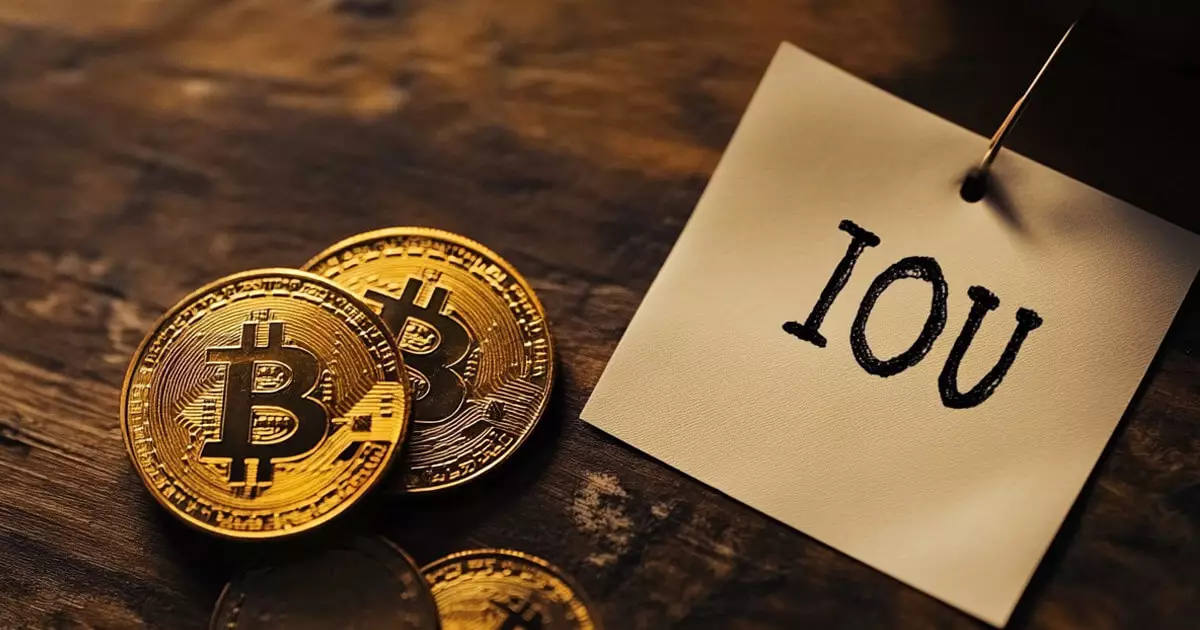The cryptocurrency ecosystem is rife with speculation and scrutiny, particularly as institutional interest grows. Recent accusations against Coinbase, a leading cryptocurrency exchange, have bolstered discussions surrounding Bitcoin, ETFs, and trust in institutional financial products. These allegations, fueled by social media discourse, assert that Coinbase is not genuinely utilizing BlackRock’s funds to purchase actual Bitcoin but rather issuing letters of debt. This article seeks to critically examine these claims, the market dynamics at play, and the responses from industry leaders.
The allegations surfaced on social media on September 16, alleging that Coinbase was engaged in questionable practices concerning its handling of BlackRock’s Bitcoin ETF, dubbed IBIT. Speculators contended that the exchange was manipulating Bitcoin’s price by utilizing funds ineffectively rather than ensuring Bitcoin purchases. Such claims are not new in the cryptocurrency realm, as allegations of similar natures have often emerged during times of market volatility, particularly when Bitcoin’s price exhibits prolonged downtrends.
Eric Balchunas, a senior ETF analyst at Bloomberg, has taken a definitive stand against these allegations, labeling them as “absurd.” According to Balchunas, BlackRock would not tolerate any malfeasance involving its funds, emphasizing the stringent regulatory environment financial firms operate within. By highlighting that “violating regulations” would lead to severe consequences, Balchunas effectively counters the speculation surrounding Coinbase’s practices. His comments underscore the seriousness with which institutional players approach compliance and the integrity of their operations.
Furthermore, Coinbase’s CEO Brian Armstrong took to the public sphere to further debunk claims regarding IBIT. Armstrong explained the mechanics behind Coinbase’s custody of assets, clarifying that all ETF-related transactions—specifically mints and burns—are settled on-chain. He emphasized that institutional clients engage in off-chain trading processes before finalizing trades on-chain, ensuring a high degree of security and accountability.
Despite these reassurances from industry leaders, skepticism continues to pervade the cryptocurrency community. The historical backdrop of distrust towards institutional players, coupled with ongoing market pressure, likely fuels this atmosphere of doubt. Balchunas identified two key reasons for this sentiment: the urgent desire among Bitcoin investors to find blame for consistent price declines and a general wariness of government and institutional oversight.
This skepticism is reminiscent of past controversies surrounding gold ETFs, where “gold bugs” frequently derided funds like SPDR Gold Shares (GLD) as “paper gold.” Balchunas’s insight into this phenomenon reveals an enduring ambiance of mistrust that has plagued the transition of traditional assets into newer financial structures within the crypto space.
The advent of new products, such as Coinbase’s synthetic Bitcoin offering, cbBTC, has not only managed to spur initial interest but also incited significant debate within the community. On launch day, cbBTC’s market capitalization reportedly soared past $100 million, yet it quickly became a target for criticism due to concerns regarding its backing. Tron’s founder Justin Sun raised alarming potential futures for cbBTC holders, speculating that it could be at risk of government seizure.
Sun’s claims resonate with deeper fears among Bitcoin proponents regarding centralized control over decentralized assets. Critics labeling cbBTC as a “paper” Bitcoin reflect a broader fear of relinquishing autonomy over cryptocurrency, leading to a growing divide between advocates for decentralized ownership and those who seek institutional legitimacy.
The frays between speculation, institutional interest, and community trust cast a long shadow over the cryptocurrency landscape. Coinbase, under scrutiny from various fronts, finds itself encapsulated within a dialogue about the validity of ETFs and the role of exchanges in maintaining the integrity of Bitcoin. As experts like Balchunas and Armstrong strive to instill a sense of trust, the community’s skepticism regarding centralized solutions will likely persist.
While institutions like BlackRock step into the Bitcoin arena, the balance between trust and governance will be paramount. How Coinbase and similar platforms navigate these waters will not only shape their future but the broader acceptance of cryptocurrency as a legitimate asset class. As discussions evolve, one fundamental truth remains: the path forward must prioritize transparency and accountability to shift the prevailing narrative from skepticism to confidence.

